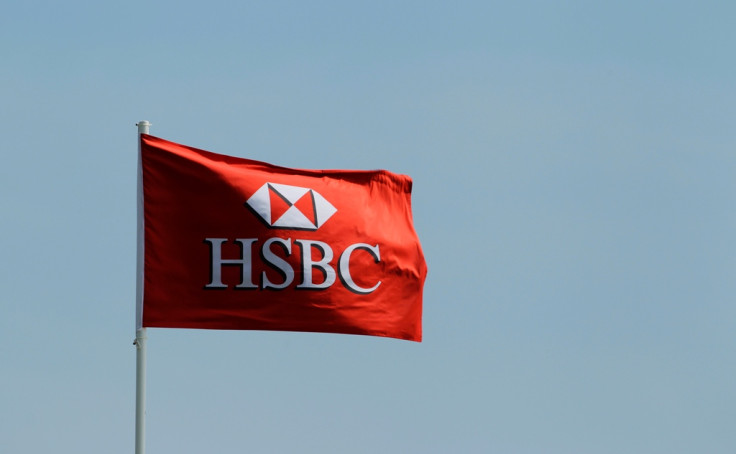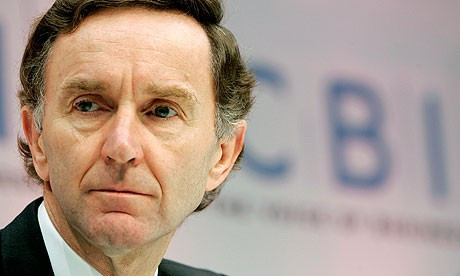Stefan Stern: HSBC has riled the anti-business brigade but companies must show more humility
Hands up those of you who like the idea of business doing badly. Nobody? It figures. You are, after all, reading IBTimes UK. If you were hoping to find Smash The System or All Bankers Must Die, you need to adjust the settings on your web browser.
In the UK, we are going through another round of the familiar "business: pro or anti?" debate, which is rarely an uplifting experience. Socratic it is not. Instead, opposing points of view are caricatured and traduced.

Suddenly, it seems, people are either in favour of state-driven collectivisation or the return of slavery, at least according to the opponents' versions of each other's position.
The common ground is fenced in and covers an ever-diminishing amount of space. This could have something to do with the general election that is taking place here on 7 May.
Into the middle of this already unsettled environment come the latest revelations about HSBC's dodgy Swiss bank accounts, and the super-rich's attempts to keep their money well hidden from their national tax collectors. And suddenly some of the more extravagant criticisms made of bad business practice seem slightly less overdone. For real business people, doing real and honest business, such developments must be particularly unwelcome.
At moments like these company directors are asked, not unreasonably, about their governance practices and approach to business in general. They might turn for help to a book published in 2009 called Good Value: Reflections On Money, Morality And An Uncertain World, which was written by a distinguished international business leader.
Businesses that aim to be good corporate citizens need to think about their responsibilities, the book suggests. "For companies, where does this responsibility begin?" the author writes. "With their boards, of course. There is no other task they have which is more important. It is their job – and one which by its nature will never be complete – to promote and nurture a culture of ethical and purposeful business throughout the organisation."
The author of these words, you may have guessed by now, was Stephen Green, Lord Green of Hurstpierpoint, the former chief executive and chairman of HSBC, a former government trade minister and an ordained Church of England minister to boot.
We have not yet reached, its seems, peak Schadenfreude for the fallen business heroes of the last decade. But that is partly because we have not yet read the complete balance sheet. Anyone can succeed in business, for a time, by cutting corners, externalising costs or by plain cheating. And some may get away with this for a while. But in the end the truth will out, most of the time.
Business elements must not be forgotten
When business leaders reject all and any criticism, accusing sceptics of being "anti business", the debate, such as it is, gets stuck. At the same time, a more mature account of business would recognise that costs must be controlled; competition, while a good thing, inevitably leads to there being winners and losers; commercial organisations are not charities; and nobody's job can be guaranteed for ever.
Some critics of business seem to want businesses to be a lot less business-like. More like, well, not-for-profit or even charitable organisations. That cannot be right either.
A bit more humility, in other words, from those who are crudely labeled either "pro" or "anti" business, would be welcome. A mixed economy is a healthy economy. Fair competition can benefit us all. And intelligent regulation, far from "tying firms up in red tape", makes fair competition possible, and also allows for the preservation of basic human decency. Almost everybody can agree with this. The "pro" and "anti" stuff just gets in the way.

The other reason we need greater humility is that its alternative, over-confidence, can end up turning into hubris. Read the following words, taken from a speech entitled "Sustainable shareholder value: why values matter" given by Lord Green in St Paul's Cathedral in November 2006, and shudder:
"HSBC feels like a kind of meeting place of the world, a crossroads of different cultures, of people from different ethnic backgrounds, and religious and other persuasions. The diversity of my colleagues – collectively we speak over 130 languages – reflects the diversity of customers we serve around the world, and of people on the planet.
"In some respects this might seem to make it difficult for a company to adhere to a single set of principles. Yet for all the obvious cultural diversity, one thing that constantly strikes and impresses me is the extent to which my colleagues share the same desire to work for a responsible and respected company.
"HSBC is a company made up of people of many different faiths, and people of no faith, but there is an enormous amount of common ground in terms of their value set and their aspirations for the way the company they are a part of behaves."
Stefan Stern is a business, management and politics writer. He writes for The Guardian and The Financial Times and is a visiting professor at Cass Business School.
© Copyright IBTimes 2025. All rights reserved.






















